Occupational Therapy Mental Health Fellowship
The UNC Health Occupational Therapy Mental Health Fellowship is a 2 year post-graduate program starting in January of each year. Applications are accepted through July 15. Accepted fellows are full-time employees and will receive full benefits and didactic instruction.
Mission
The mission of the UNC Health Occupational Therapy Mental Health Fellowship Program is to provide a collaborative, translational experience to advance the knowledge, skills and abilities of occupational therapists specializing in mental health care to meet the health and wellness needs of the people of North Carolina and beyond.
Philosophy
The fellowship mentors follow the principles of Adult Learning Theory - andragogy (Knowles, 1984). Andragogy emphasizes that learners must be active and involved in the planning and evaluation of their instruction. Adult learning is most effective through experiential learning where the learner engages in problem-centered rather than content- oriented learning. The theory also emphasizes that adults bring many experiences to the learning situation, which are harnessed as resources for person-centered learning. The fellowship mentors and faculty are committed to developing fellows who are recognized leaders within their specialty area of mental health care.
The core values of the fellowship program are reflected in the mission of UNC Health of becoming the nation’s leading public academic medical center by developing high-quality leaders, teachers, and caregivers.
Program Structure
The UNC Health Occupational Therapy Mental Health Fellowship Program has two main components:
Year 1: AOTA accredited Mental Health OT Fellowship at UNCMC
The AOTA Mental Health Occupational Therapy Fellowship at UNC Health allows fellows to become specialized in mental health service delivery across the lifespan. The majority of the first year will take place at UNC Health’s Medical Center (UNCMC) in the heart of Chapel Hill, North Carolina. Fellows will work as part of the inpatient mental health rehabilitation team, providing occupational therapy services to a wide variety of adult patients with acute/chronic mental health needs on the inpatient psychiatric units. The fellow will complete the adolescent module at UNC Health’s Youth Behavioral Health Hospital, a 54-bed inpatient facility in Butner, North Carolina offering a first-of-its-kind model of mental health care for children and adolescents. This location is one of the only facilities in the state to care for children and adolescents with acute psychiatric conditions and co-occurring developmental disabilities or substance use conditions.
Year 2: Second year will be spent working at UNC Health Rex serving as a subject matter expert, developing programming and completing scholarly endeavors.
UNC Health Rex is Raleigh’s oldest hospital that now holds 665 beds. UNC Health Rex was founded by John T Rex in 1894 and was originally located in what is now the Dorothea Dix Park and is now located in west Raleigh. We are very proud to serve our community and pride ourselves on great teamwork to meet the needs of our patients. We serve many different patient populations including general medicine, heart and vascular, neuro-oncology, orthopedics and many others. We have also noticed an increased need for care in our mental health population and seek to grow the best programming possible. As a testament to our services, UNC Health Rex won WRAL Voter’s Choice Awards as the Best Hospital in the Area. You can see a list of our many accomplishments here.
OVERVIEW YEAR 1
The curriculum is designed to increase the breadth and depth of knowledge, skill, and application of occupational therapy in mental health service provision.
Fellows will develop excellence in evaluation, intervention, consultation, advocacy, teaching and the integration of current evidence into the patient care they provide. They will contribute to the profession through teaching, research, advocacy and leadership.
The fellow is a full-time employee (with competitive salary and benefits) who works three days per week providing direct patient care, participates in didactic instruction one day a week and mentor time one day a week. For the didactic portion of the program the fellow completes weekly learning activities in a mixed format (reading, researching, discussion, observation, online posts and teaching). Benefits are provided by the UNC Office of Graduate Medical Education (GME) including PTO and sick time. Holiday coverage is expected.
Didactic work is organized into learning modules spanning the first 12-months of the fellowship:
- 6-10 week focused learning: Orientation and Systems, Philosophical and Theoretical Foundations, Older Adults, Adults, Adolescents, Academic and Clinical Teaching, and Elective
- Continuous learning: Research, Advocacy, Leadership and Career Development, and Wellness
OVERVIEW YEAR 2:
The fellow is a full-time employee (with competitive salary and benefits) who works 4.5 days per week providing direct patient care and participates in research, administrative, and/or teaching activities ½ a day a week. Benefits are provided by GME including PTO and sick time. Holiday coverage expected.
Program Outcomes
Upon completion of the fellowship program the fellow will:
- Meet competencies set forth from the American Occupational Therapy Association (AOTA) as essential skills.
- Be eligible for the AOTA Board Certification in Mental Health pending AOTA’s transition to exam-based advanced certification for Mental Health.
- Have successfully participated in scholarly and professional activities, including research and a submission of a presentation to the North Carolina Occupational Therapy Association (NCOTA) Fall Conference
Eligibility
- Graduate of either ACOTE or WFOT OT Education Program
- Successfully passed the NBCOT exam
- Eligible for North Carolina occupational therapy license
- Applicants must be residents of the U.S. and have NC OT licensure prior to program start date.
Admission Information
Submission for applications will close on July 15, 2025.
Please go here to complete the application and submit the following to us via email:
1. Resume or CV
2. Personal Essay
Please answer the following questions. (Typed, 250-500 word limit for each question)
- Why have you chosen to pursue a fellowship program and what do you hope to gain from it?
- What makes you a strong candidate and a good fit for the UNC Health Mental Health Occupational Therapy Mental Health Fellowship Program?
- What are your short- and long-term professional goals?
3. Three professional letters of reference (at least one should be from an academic faculty) sent directly by the reference to clinicaledreq@unchealth.unc.edu
We will invite strong candidates to visit Chapel Hill for an interview and tour of the hospital on Friday, August, 22, 2025. Decisions will be made within 2 weeks after the interview date. The fellowship program will begin in January 2026. Fellows must have a North Carolina OT license prior to January 1.
With questions, please contact clinicaledreq@unchealth.unc.edu.
Diversity Statement: The UNC Health System and the UNC School of Medicine are committed to valuing all people throughout our organization, regardless of background, lifestyle, and culture. A diverse and inclusive work environment for staff and culturally appropriate care for our patients, are essential to fulfilling our UNC Health vision of improving the health of all North Carolinians.
Equal Employment Opportunity: UNC Health is an equal opportunity employer. As such, UNC Health offers equal employment opportunities to applicants and employees without regard to race, color, religion, sex, national origin, age, genetic information, disability, sexual orientation, gender identity or political affiliation.
Administration
 Keara Beauchamp, OTR/L, Program Coordinator
Keara Beauchamp, OTR/L, Program Coordinator
Undergraduate School:
Milligan University
Graduate School:
University of North Carolina at Chapel Hill
Professional Interest:
Perinatal Mental Health; Professional Wellness and Education
Why I serve as a mentor:
My choice to become a mentor, and now the program coordinator all stemmed from my own experience as a fellow in this program. I feel incredibly lucky to have been on the receiving end of the guidance and expertise of many of these mentors, who helped to cultivate my own therapeutic identity as an occupational therapist in my first year of practice. To be able to now turn and provide even a small reflection of that to our fellows is a privilege. Because of my own experience and understanding of the rigor of fellowship programs, I highly value a focus on personal wellness for our fellows. I want to ensure that while we are asking them to care for the people of North Carolina, we are also creating space for them to care for themselves.
.jpg) Kristel Maes, PT, DPT, Dip MDT, Program Administrator
Kristel Maes, PT, DPT, Dip MDT, Program Administrator
Undergraduate school:
KULeuven Belgium
Graduate school:
KULeuven Belgium and University of North Carolina at Chapel Hill
Professional interest:
My clinical interest is spine. In my current position as Administrator of our post-graduate programs I have a passion for education and preparing the future generation of therapists.
Why I serve as a mentor:
Research has shown that having a professional mentor is beneficial to advancing your career. From personal experience, I value the benefit of surrounding myself with others who can give me a different perspective on a patient case, problem or project. By serving as a mentor I hope to pass on my knowledge and support a fellow's professional growth.
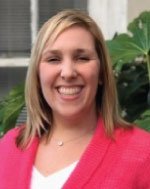 Shelley Ashcroft, OTD, OTR/L, BCMH, Work Supervisor
Shelley Ashcroft, OTD, OTR/L, BCMH, Work Supervisor
Undergraduate school:
BS: Lenoir-Rhyne College
Graduate school:
OTD: Creighton University
Professional Interest:
Mental Health, Chronic Disease Management, Political and Legal, Education, Research and Leadership
Why I serve as a mentor with the UNC Health Mental Health Fellowship:
Serving as a mentor is a great opportunity to highlight the distinct value of occupational therapy and mental health.
Mentor Information
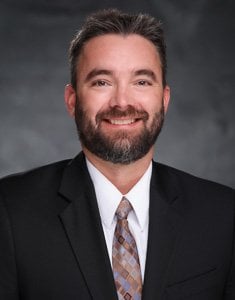
Antoine Bailliard, PhD, OTR/L, Associate Professor
Undergraduate school:
BA: Peace, War, Defense, UNC Chapel Hill
Graduate school:
PhD: Occupational Science, UNC Chapel Hill
MA: Occupational Therapy, UNC Chapel Hill
Professional Interest:
I am an Associate Professor in the Occupational Therapy Doctorate Division at Duke University. My research focuses on exploring how sensory processing patterns affect community integration and participation in meaningful occupations. My community engaged scholarship focuses on improving the delivery of community-based services for adults with serious mental illness. My theoretical work focuses on expanding understandings of occupational justice to enhance inclusion and understandings of how sensory processing patterns affect meaningful participation. I use participatory methods to partner with people with lived experience with mental illness to design and implement research activities and in the development of tools and programs that improve the health, wellbeing, meaningful participation and community integration of persons with serious mental illness. My clinical experience spans from working in acute inpatient mental health, chronic inpatient mental health, and community-based mental health settings. Currently, I am Co-Principal Investigator of a 5-year $2.4 million federal grant from the Substance Abuse and Mental Health Services Administration to design an innovative assertive outreach team to meet the needs of adults with serious mental illness who are homeless or at risk of homelessness. I am also a consultant for the Public Mental Health Partnership between the L.A. County Department of Mental Health and UCLA. I am an Adjunct Professor at the Institute for Best Practices at the Center for Excellence in Community Mental Health at UNC-Chapel Hill where I provide consultation and trainings to community mental health providers across country.
Why I serve as a mentor with the UNC Health Mental Health Fellowship: Training the next generation of researchers and clinicians is of primary importance to support our collective efforts to improve the health and wellbeing of adults with serious mental illness. In addition to its unquestionable value, I thoroughly enjoy mentoring OT fellows and guiding them on a personal journey of inquiry and discovery.
 MaryBeth Gallagher PhD, OTR/L
MaryBeth Gallagher PhD, OTR/L
Undergraduate school:
BA: Elmira College, Elmira NY
Graduate school:
PhD: University of Limerick, Limerick Ireland
MA: Boston School of Occupational Therapy, Medford MA
Professional Interest:
Critical Occupational Therapy Practice in Mental Health, Professional Reasoning and Reflexivity
Why I serve as a mentor with the UNC Health Mental Health Fellowship: I love working with people who want to make the world better through occupation! The fellowship offers me the opportunity to cultivate a perspective in others that directly influences occupational therapy practice in mental health. This motivates me to be a better occupational scientist and therapist.
 Kimberly Conrad OTD, MS, OTR/L
Kimberly Conrad OTD, MS, OTR/L
Undergraduate School:
North Carolina State University
Graduate School:
MS: Winston Salem State University MSOT and Creighton University OTD
Professional Interest:
Mental Health, Interdisciplinary teams, Advocacy, Leadership, and Women’s Health
Why I serve as a mentor with UNC Mental Health Fellowship:
Mentorship offers valuable benefits to both mentors and mentees. Through collaborative mentor relationships, we strive to enhance the field of occupational therapy. I find fulfillment in educating, supporting, and motivating fellow practitioners to champion our profession both at an organizational and individual capacity. My passion for mental health advocacy at both state and federal levels is unwavering, and I am grateful for the chance to contribute to the UNC Mental Health OT fellowship, guiding mentees towards opportunities to advocate and effect change for our clients. Advocating alongside the OT fellow throughout the year-long advocacy module brings me great joy.
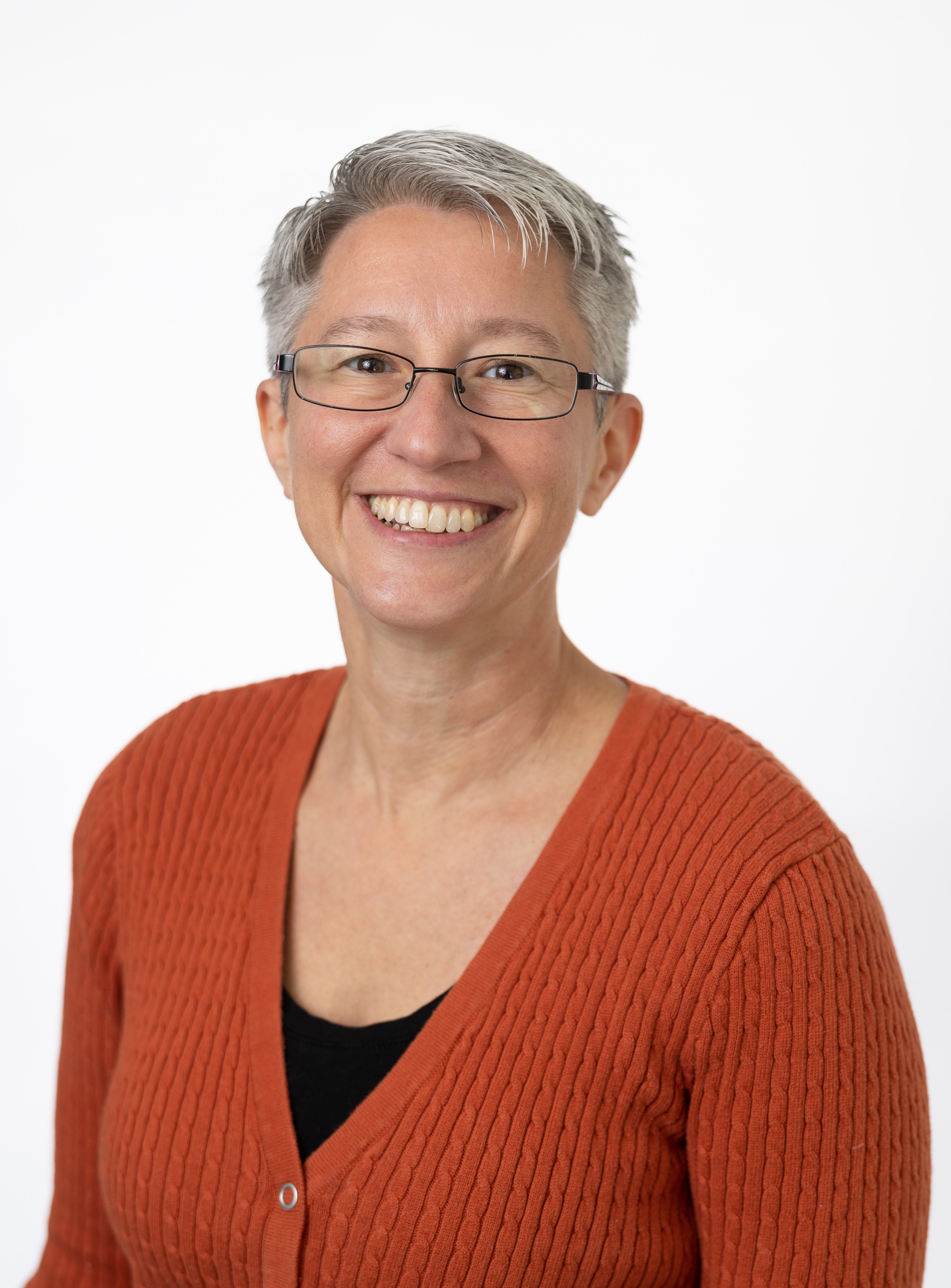 Karen Lukaszewski, OTD, OTR/L
Karen Lukaszewski, OTD, OTR/L
Undergraduate School:
MacMurray College, Jacksonville, IL
Graduate School:
- OTD: University of Illinois at Chicago (Illinois)
- MOT: University of Illinois at Chicago (Illinois)
- MSW: Aurora University (Illinois)
Professional Interest:
Aging, mental health across the care continuum, interdisciplinary collaboration
Why I serve as a mentor with UNC Mental Health Fellowship: I strive to work at the top of my license as a clinician and a professional, and I cherish the reciprocal learning experience of the mentorship relationship. I am serving as a mentor as an opportunity to engage a professional colleague in critical, systems-level thinking in an effort to promote enhanced practice, advocacy, and systemic change.
 Darren Peters, MOTR/L, BCMH
Darren Peters, MOTR/L, BCMH
Undergraduate school:
BS: Canterbury Christ Church University
Graduate school:
University of Brighton
Professional Interest:
Community mental health
Why I serve as a mentor with the UNC Health Mental Health Fellowship: I appreciate opportunities to advocate for mental health through teaching, training and mentorship to enhance the scope and impact occupational therapy can and should have in mental health. Being a mentor in the fellowship program enables me to support the development of systems, programs and therapists to support occupational therapy in mental health, especially at a community level.
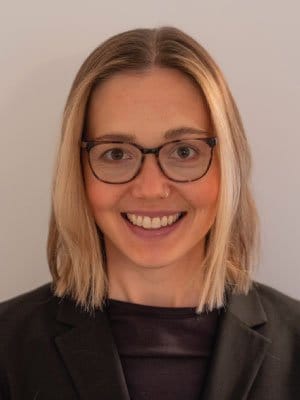 Claire Daaleman, MOT, OTR/L, BCMH
Claire Daaleman, MOT, OTR/L, BCMH
Undergraduate school
Saint Louis University
Graduate school
Saint Louis University
Professional interest
Professional and research interests include developing the evidence base and models of care that integrate occupational therapy in mental health care, including but not limited to adolescent mental health; promoting occupational justice in vulnerable communities; and exploring holistic assessment and intervention that promote participation, health, and wellness for medically complex individuals.
Why I serve as a mentor
I completed a 1-year post-graduate AOTA accredited mental health fellowship in psychosocial rehabilitation and recovery-oriented services at the Durham VA in North Carolina, working with Veterans experiencing serious mental illness (SMI) and substance use disorders (SUD). After my fellowship, I provided direct and consultative OT service within mental health and community-based settings including a jail, and within a certified community behavioral health organization, while serving as Adjunct Faculty at Saint Louis University. Within my teaching role, I had the opportunity to co-teach the OT in Mental Health course, in addition to being a clinical lab assistant, guest lecturer, and level 1 and level 2 fieldwork supervisor within the OT in Community-Based practice course. Through these experiences, I developed a passion for working with OT students and practitioners to foster an understanding of the distinct role of occupational therapy within mental health and community-based settings, including promoting the understanding of occupation-based, holistic, and recovery-oriented assessment and intervention, as well as collaborating as part of the larger inter-disciplinary team.
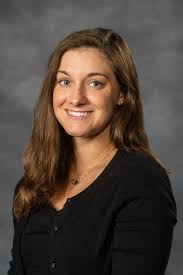 Molly Gupta, OTD, OTR/L
Molly Gupta, OTD, OTR/L
Undergraduate school
North Carolina State University
Graduate school
Virginia Commonwealth University
Professional Interest: *Needs a response*
Why I serve as a mentor with the UNC Health Mental Health Fellowship: *Needs a response*
Meet Our Fellows
 2024 Kara Woolridge OTD, OTR/L
2024 Kara Woolridge OTD, OTR/L
Undergraduate school
Coppin State University in Baltimore, MD
Graduate school
American International College, Quinnipiac University
Professional interest
My professional interests include occupational justice, advocacy, mental health, community-based practice, and academia. My faith and upbringing have developed an innate desire to contribute to my surrounding community through service. I can achieve this personal goal through professional endeavors linking occupational participation with improved health outcomes at every interval of care and life. Future professional goals include academic instruction, joining advocacy efforts to expand occupational therapy mental health practice in the community, and promoting and expanding the practice of occupational justice at micro, meso, and micro levels of practice.
Why I chose to do a fellowship program at UNC
I chose the fellowship program at UNC to obtain a mentor-guided specialization in OT mental health practice with the goal of skill refinement and expanding my knowledge base in this practice area. Though I have 4 years of experience with acute adult and older adult mental health, much of that learning was self-directed and the fellowship was a much-needed step towards specialization in this practice area.
What I like about Chapel Hill, NC
Chapel Hill is a peaceful place to live with several options to eat, entertain, and engage with the immediate and surrounding communities. I don't regret moving here from Massachusetts with its cold and snowy winters. For this Northern girl, the good weather and community are great aspects of living in Chapel Hill.
Previous Fellows:
2022 Fellow Jody Bennett, OTR/L
Professional Engagement:
- Research: Assisted Antoine Baillard with research of feasibility and acceptability of the Homeless Behavioral Outreach Behavioral Screen (HOBS). The HOBS was developed in collaboration between Antoine, the LA County Department of Mental Health and UCLA as a tool to identify individuals experiencing homelessness with severe mental illness who may benefit from additional specialized supports.
- Presentations: Co-presented at NCOTA’s Fall 2022 Conference; Title: Mental Health in the Workplace: Lessons from a Fellowship Wellness Module
Current Employment:
Occupational Therapist with UNC Orange/Chatham Assertive Community Treatment (ACT) Team
2021 Fellow Genevieve Romeo, OTR/L
Current Employment:
Mental Health Occupational Therapist at UNC Health
2019 Fellow Zachary Schafer, OTR/L
Professional Engagement:
- Research: Occupational Reflection as Intervention in Inpatient Psychiatry
- Bailliard, A., Schafer, Z., & Hart, L. (2021). Occupational Reflection as Intervention in Inpatient Psychiatry. Am J Occup Ther, 75(5), 7505205080. doi: https://doi.org/10.5014/ajot.2021.043703
Current Employment:
Executive Director of Mountain Valley Treatment Center
2018 Fellow Keara Palpant, OTR/L
Current Employment:
Mental Health Occupational Therapist, Educational Specialist, and Occupational Therapy Mental Health Fellowship Coordinator at UNC Health